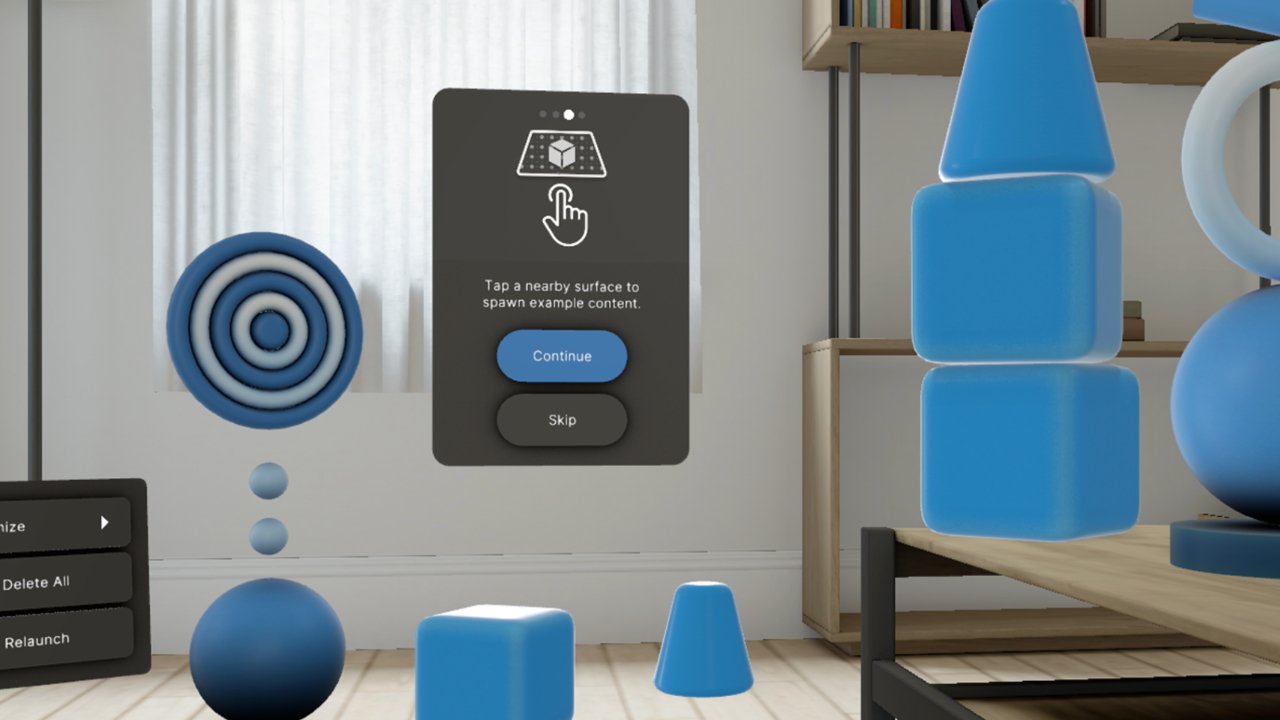Unity adds Apple Vision Pro support for all game developers
Following months in beta test, Unity has now publicly released support for all developers to use it for building native Apple Vision Pro apps.

Example of an Apple Vision Pro app designed in Unity. (Source: Unity)
Back in July 2023, shortly after Apple's unveiling of the Apple Vision Pro, game engine firm Unity launched support for visionOS in beta. It was aimed at games and other app developers, specifically to create apps for Apple's new headset.
Now it has announced that after move than six months in beta, the firm's support for visionOS is available for all Unity Pro, Enterprise, and Industry subscribers.
"You can now leverage Unity's familiar authoring workflows, robust XR tools, and cross-platform compatibility to create immersive spatial experiences for a whole new ecosystem on Apple Vision Pro," says the firm in a detailed blog post. "Thousands of developers around the world participated in our beta program, collaborating closely with our engineering teams and generously sharing knowledge to build a community primed for a new era of spatial computing."
Unity says that its tools enable developers to make fully immersive mixed reality experiences. But it can also render content that runs in a 2D window, and supports porting of existing virtual reality titles.
"Making 'LEGO Builder's Journey' for Apple Vision Pro has been an incredible experience," said Mikkel Fredborg, technical lead at Light Brick Studio, "working with a completely new type of interaction and rendering paradigm."
"Unity has been very supportive in bringing their well-known workflow to a completely new type of system," continued Fredborg. "Thanks to the support for visionOS, we have been able to tap into many of the features that make Apple Vision Pro such a unique platform."
Tommy Palm of Resolution Games says that his company has been working an as-yet unannounced project, using Unity's visionOS support, which will be released later in 2024.
"We aim to make our titles available on the emerging devices players want to use," said Palm. "We feel very convinced that Apple coming into this market segment is going to be monumental."
"Unity's multi platform support and comprehensive tools for spatial computing development makes it straightforward to leverage our experience using Unity and easily get started with Apple Vision Pro," continued Palm. "We are excited to soon announce a new game that was designed to take full advantage of the device's unique capabilities."
The company does not support visionOS in its basic Unity Personal tier, but it is offering a free 30-day trial of Unity Pro. Note that Unity only supports visionOS on Apple Silicon Macs.
A subscription to Unity Pro costs from $185/month.
Read on AppleInsider

Comments
Unreal is also working on AVP support and may end up a better option despite their fight with Apple. Disney uses Unreal heavily and may be a big reason Epic is still working on AVP support despite their feud. Unreal pushes MaterialX for shaders in UE5, a standard for shaders that Apple is also pushing. MaterialX is artist friendly and works across different vendors shading languages. Unity doesn’t have support for MaterialX, although there is partial support to translate Unity shader graphs to MaterialX for Unity’s RealityKit backend.
We may see more use of RealityKit for games. Although RealityKit is more suited for AR or casual games. It is missing features normally expected for heavily immersive games. It is a great artist-friendly engine, but you are not going to write a AAA game with it.
Are you Sweeney Todd?......